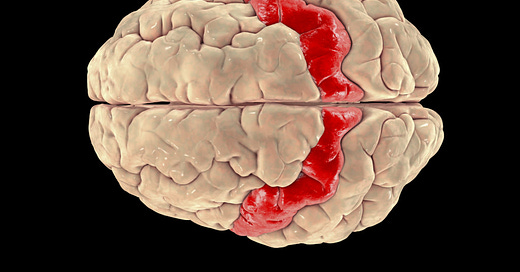One of the fundamental functions of the brain is to simply move. That simple. Organisms that need to coordinate complex movements, particularly at speed, have brains. Organisms that don’t, don’t. So, let’s take a look at the key regions in the brain linked to motor movement. Of course, it can all get very complicated very quickly.
The little sea squirt is a fascinating creature. It’s starts off life as a tadpole-like creature and has a small rudimentary brain to help it swim and find itself a location, usually a rock, to fix itself on and start its adult life. Once it has found itself a location it anchors itself and starts the process of growing into an adult sea squirt and to start this transformation it needs energy. First off, it starts to digest its tadpole like features such as the tail which it previously used to move through the water, and finally it digests its own brain leaving it without a brain anymore. Admittedly it is a very rudimentary brain. But fascinating, nevertheless.
This example is often used to show that creatures don’t necessarily need a brain, we know that, but also that when it becomes superfluous it can be digested. Now, now, no funny jokes about other political parties. Indeed, the human body does this in some forms, known as catabolic reactions, such as “eating” muscle that is no longer needed. Very apparent during starvation.
The more important aspect is that it shows that the brain has a core function of movement and particularly of rapid and coordinated movement. Plants can move but very slowly. This therefore points to a key function of the human brain being simply movement.
This is why I have decided to look into the motor cortex this month. Though often not considered an exciting area of the brain by the general public – we like to look at emotional and cognitive centres many of which have already been covered in these pages. But considering its key influence it would be a crime to gloss over this. And indeed, when we look into the brain, we can see that there are an awful lot of resources dedicated to motor functioning.
Keep reading with a 7-day free trial
Subscribe to leading brains Review to keep reading this post and get 7 days of free access to the full post archives.




